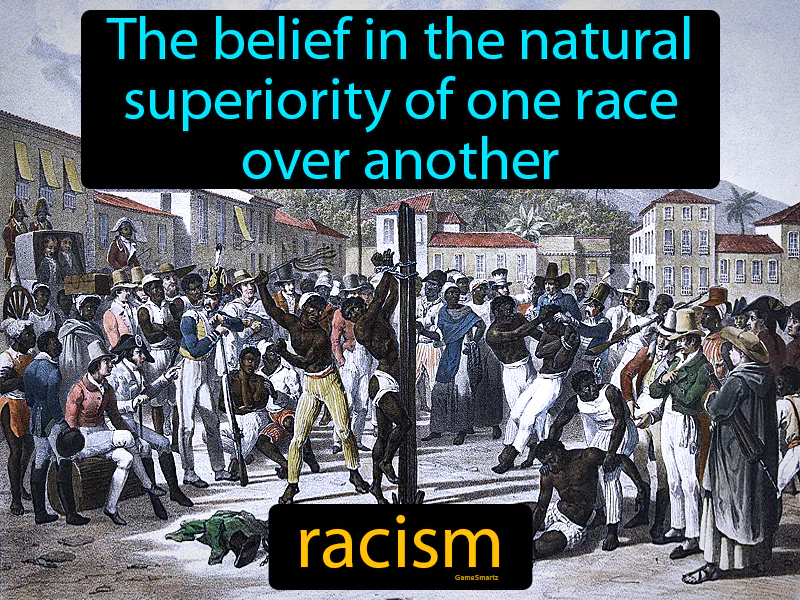Racism
Racism: Easy to understand
During the Industrial Age, 1800-1915, racism was used to justify the exploitation and oppression of non-European people, often portraying them as inferior to justify colonialism and harsh labor conditions. This belief supported the idea that European nations had the right to dominate and "civilize" other parts of the world, leading to widespread colonization and economic inequality. Racism responded to the need for cheap labor and control over resources, reinforcing social hierarchies and power dynamics. Today, racism still matters as it influences social interactions, economic opportunities, and systemic inequalities, affecting how people are treated in various aspects of life. For example, racial discrimination in hiring practices can limit job opportunities for people of color, impacting their economic stability and well-being.

Practice Version

Racism: The belief in the natural superiority of one race over another. Racism. Throughout history, racism is when people are treated unfairly or unequally because of their race or skin color.